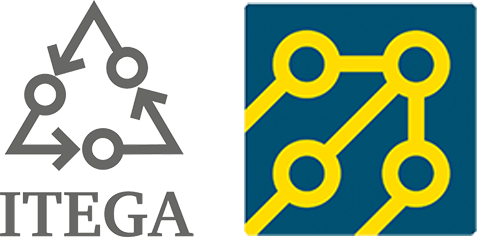ITEGA’s work addresses at least three recommendations of Knight Commission on Trust, Media and Democracy: “Crisis in Democracy: Renewing Trust in America.”
1. KNIGHT RECOMMENDATION:
- “Create a multi-stakeholder forum to develop and promote pro-social policies for tech providers.”
RECOMMENDATION, Page 105
ITEGA RELEVANCE:
ITEGA has convened three working sessions since April bringing together local news organizations, privacy experts, technologists, civil-society advocates and others with the goal of established a shared-user network for trust, identity, privacy and information commerce, including a founding meeting at the Pocantico Center, a multistakeholder convening in Chicago, and a working session in Brooklyn hosted by the NYC Media Lab. An April 24-25, 2019 gathering in Washington, D.C., will focus on action strategies that four ITEGA tasks group are now defining.
2. KNIGHT RECOMMENDATION:
- “Technology companies and online services that collect user data should become information fiduciaries, with duties to the user.”
RECOMMENDATION, Page 105
-
-
- At Page 111: ” . . . [T]he willingness to allow such personal-data gathering requires a belief that such entities will protect them against harm and improper use of the data.”
- At Page 112: ” . . . [T]he commission sees this as a promising area for instilling trust, not only in online media but in all collectors of personal data.”
- At Page 114: “Adopting and enforcing the information fiduciaries framework. The concept of information fiduciaries could be implemented in different forms — legislative, contractual or otherwise. Ideally, all data-collecting entitles dealing with sensitive user data — platforms, providers and media companies — would voluntariily adopt the duties of the information fiduciary. Imposing regulation from above would require more political capital than might be available and could lead to drawn-out legal battles. Voluntary adoption encouraged by regulation could result in a flexible regulatory structure focused on engaging data collectors as partners rather than as adversaries.”
- “Users’ fear of losing control over personal information, and particularly of having it disseminated to unknown third parties, can lead to reduced trust in the disseminating entity. When that entity, whether an online social platform, digital portal or media outlet, has been a relied-upon source of information, it leads to reduced trust in media generally.” COMMISSION FINDING, Page 104
-
ITEGA RELEVANCE
ITEGA founding member partner, the Local Media Consortium, believes news organizations are ideally suited to help the public manage digital identity and privacy and will deploy a federated-authentication, single-sign-on service that focuses on giving the user control over how data is collected and used. Among other experts who agree is Douglas K. Smith, executive director of Columbia Journalism School’s Sulzberger Executive Leadership Program.
3. KNIGHT RECOMMENDATION:
- “Provide for data portability among social networks.”
RECOMMENDATION, Page 105
ITEGA RELEVANCE
ITEGA’s vision, as a 501(c)3 public-benefit organization, is to help develop and govern global standards for the exchange and use of personal data, without reliance upon individual governments’ regulation or dependence upon private technology platforms. Much as the Internet Corporation for Assigned Names and Numbers (ICANN) governs domain names, ITEGA believes there is a need for a similar organization to openly manage Internet identity in the public interest.
SOURCE LINKS:
Knight Commission on Trust, Media and Democracy:
“Crisis in Democracy: Renewing Trust in America”
HOME PAGE FOR THE KNIGHT REPORT RELEASED FEB. 5:
DOWNLOAD REPORT:
Commission members:
MEDIUM PAGE:
A decade ago, the Knight Commission on Information Needs of Communities, also run by the Aspen Institute, met to explore the changing business model for newspapers and other issues facing the media and news-hungry communities in the digital age. Its recommendations influenced the FCC 2010 national broadband plan and 2011 report on The Information Needs of Communities.

